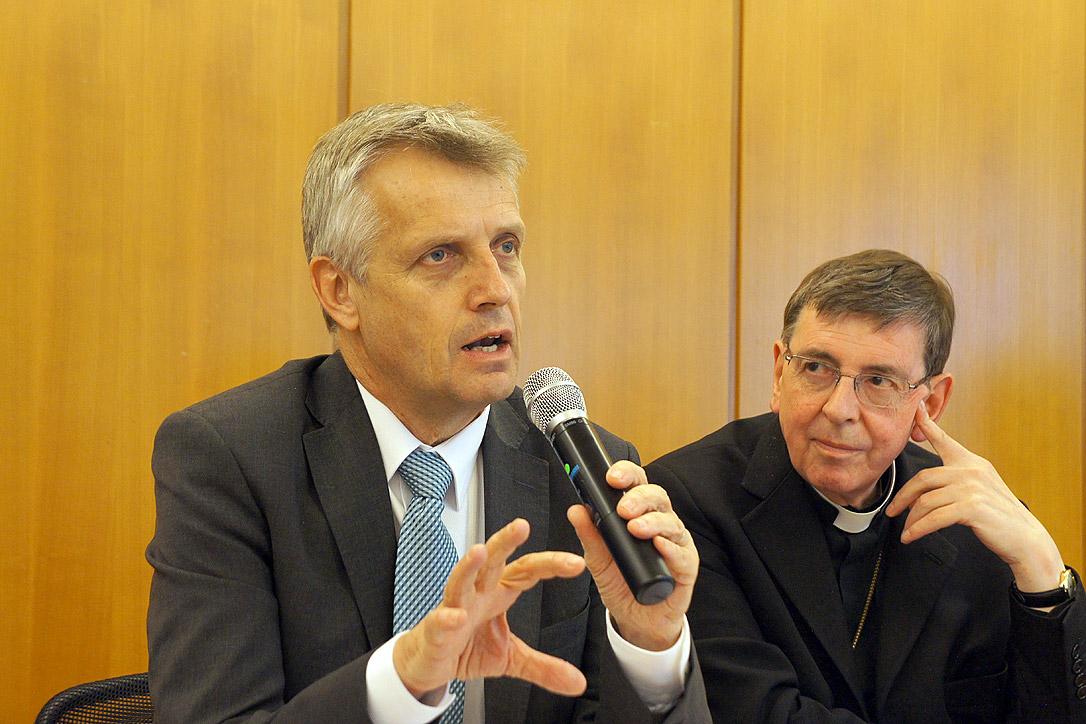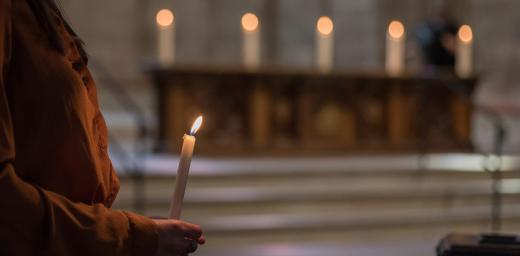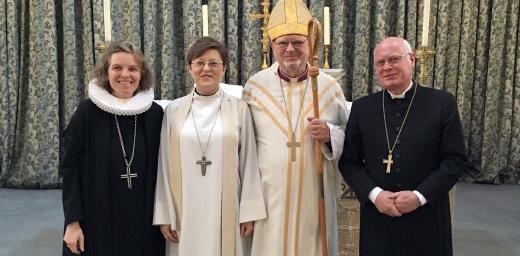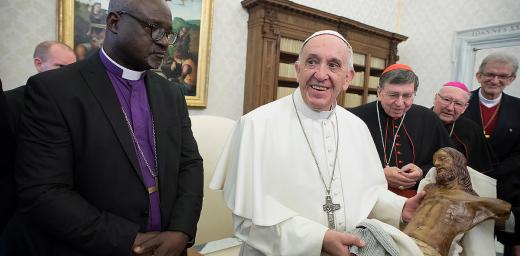LWF General Secretary Junge and Cardinal Koch Share their Views on Understanding of the Church

General Secretary Junge and Cardinal Koch during the presentation of From Conflict to Communion at the 2013 LWF Council in Geneva. Photo: LWF/S. Gallay
Contributions to German Internet Project “2017 gemeinsam unterwegs”
(LWI) - “When will the Catholic Church recognize the Protestant Church as a church?” This is the question discussed by The Lutheran World Federation (LWF) General Secretary Rev. Martin Junge and the President of the Pontifical Council for Promoting Christian Unity Kurt Cardinal Koch in their contributions to the ecumenical internet project “2017 gemeinsam unterwegs” (“2017 - Together on the Way”).
The question is based on joint statements on the common understandings of the ministry in the recent Lutheran-Catholic dialogue document From Conflict to Communion. Authored by the Lutheran-Roman Catholic Commission on Unity, the publication presents common and differing views on the history of the Reformation and also contains hopeful prospects of both dialogue partners’ coming closer, and continuing to work on the topic in the next few years.
“Fifty years of ecumenical dialogue […] show that more unites than divides Protestant and Catholic Christians,” is Cardinal Koch’s opening remark. “The Catholic Church therefore recognizes the Protestant church in the way the latter understands itself,” he continues. However, in his view, the Protestant church’s self-understanding is different from the Catholic Church’s self-understanding and both therefore need to keep talking: “Since you have to know what you want to recognize, a precondition of our recognizing the Protestant church is prior clarification of how it understands the church,” he states.
By contrast, general secretary Junge underlines in his statement that Protestant churches understand themselves as churches in the full sense and do not depend on recognition from outside. Through coming closer in ecumenical dialogues with the Catholic Church and deeper fellowship, however, “recognition as church is a consequent and necessary step.” Junge likewise favors continuing the dialogue between the LWF and the Vatican on this issue. Necessary “milestones” in understanding have already been reached both at the theological and practical level, Junge underlines.
The full statements by the LWF general secretary and PCPCU president are published on “2017 gemeinsam unterwegs” website, an ecumenical project based around the dialogue document From Conflict to Communion. In April 2014, the LWF and the PCPCU called on the LWF member churches and the Catholic Church dioceses to study the document together as an ecumenical exercise. Responding to this invitation, the LWF German National Committee and the Johann Adam Möhler Ecumenical Institute developed this open discussion platform.
The dialogue document on the online discussion platform is gradually turning into an annotated version as people give their feedback on the dialogue process between the Roman Catholic and Lutheran churches. The issues raised in the Lutheran-Catholic dialogue are focused in a “question of the week” to which two public figures are invited to respond. Visitors to the site are invited to join in the discussion. Both Junge and Koch replied to the twelfth “question of the week.”
The website will be online until 21 November 2014, after which the content gathered will be handed over to the LWF and the PCPCU.
From Conflict to Communion | “2017 gemeinsam unterwegs”





